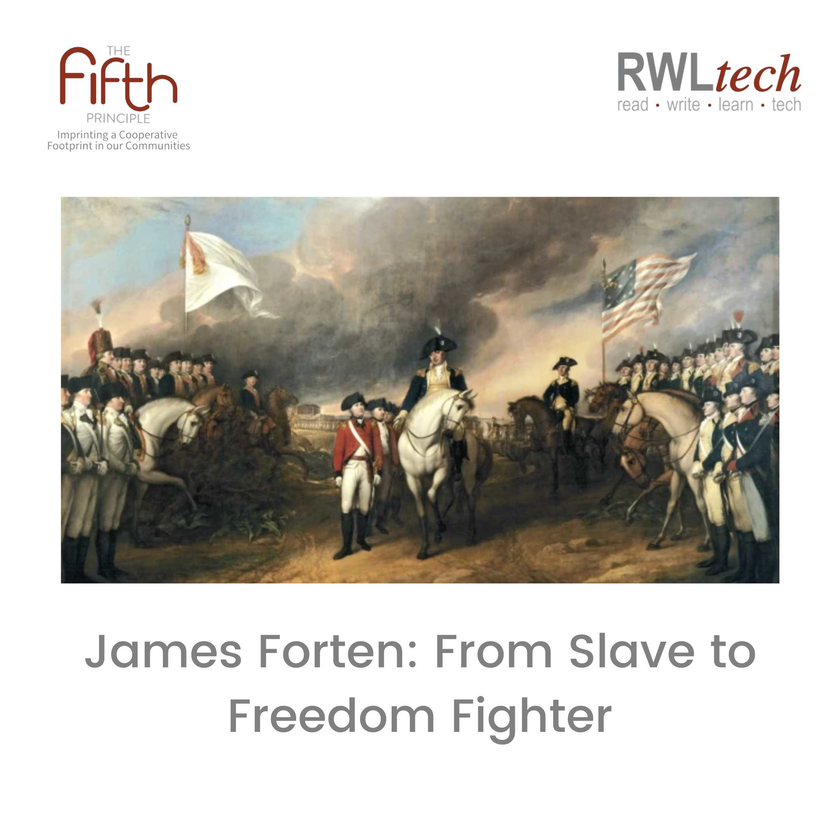James Forten had a tough childhood, but he grew up to be a successful businessman and a leader in the fight for freedom. He fought in the Revolutionary War and was captured by the British. He was imprisoned on a prison ship, but he never gave up. After the war, he used his money to help other enslaved people. He also spoke out against slavery and helped to create a safe place for Black sailors. James Forten was a true hero.
Do you want to learn more about what you can do to act NOW! and save our Constitution.
https://www.thefifthprinciple.coop/wcid.html
Take your learning to the next level:
✍️Learn about historical events that shape our future. Flashback to a Fabulous Future.
https://www.voiceamerica.com/show/4117/flashback-to-a-fabulous-future
✍️ Join our Bible Study Group. It is called Faith and Freedom – A Recipe for Restoration. Study the Bible through the lens of our Founding ...


Join us for this great home school summit! https://greatdiscovery.ai/homeschool/416328/
I encourage YOU to employ what I call "Harmonic Leadership," which is a really evocative name. Let's explore the core philosophy behind that title and what it means to lead harmonically?
This is a concept I chose very intentionally. For too long, we’ve associated leadership with a single, loud voice—a soloist. But the most successful, innovative, and resilient teams don't operate like a solo act; they operate like a symphony or a great jazz ensemble.
Harmonic Leadership is built on a simple but profound idea: a leader's primary role is not to be the best player, but to create an environment where every musician (person) can play their best, together. It’s not about everyone hitting the same note—that's unison, not harmony. Harmony is when different, diverse notes combine to create a sound that's richer and more beautiful than any single note (person) could be on its own.
So, to lead harmonically means you are focused on tuning the team. You’re listening to the dynamics, blending ...













